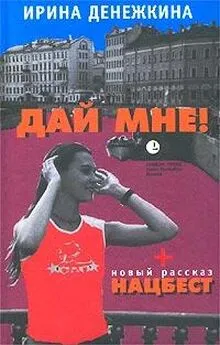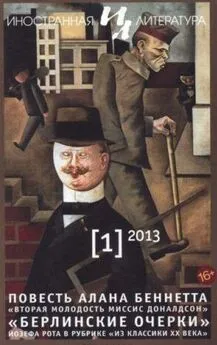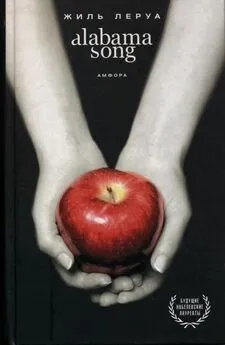Toni Morrison - Song of Solomon
- Название:Song of Solomon
- Автор:
- Жанр:
- Издательство:неизвестно
- Год:неизвестен
- ISBN:нет данных
- Рейтинг:
- Избранное:Добавить в избранное
-
Отзывы:
-
Ваша оценка:
Toni Morrison - Song of Solomon краткое содержание
Song of Solomon - читать онлайн бесплатно полную версию (весь текст целиком)
Интервал:
Закладка:
He wasn’t up to Guitar now. He would see him later.
People behaved much better, were more polite, more understanding when Milkman was drunk. The alcohol didn’t change him at all, but it had a tremendous impact on whomever he saw while he was under its influence. They looked better, never spoke above a whisper, and when they touched him, even to throw him out of the house party because he had peed in the kitchen sink, or when they picked his pockets as he dozed on a bench at the bus station, they were gentle, loving.
He stayed that way, swaying from light buzz to stoned, for two days and a night, and would have extended it to at least another day but for a sobering conversation with Magdalene called Lena, to whom he had not said more than four consecutive sentences since he was in the ninth grade.
She was waiting for him at the top of the stairs when he came home early one morning. Wrapped in a rayon robe and without her glasses, she looked unreal yet kind, like the man who had picked his pocket a short while ago.
“Come here. I want to show you something. Can you come in here for a minute?” She was whispering.
“Can’t it wait?” He was kind too; and he was proud of the civility in his voice, considering how tired he was.
“No,” she said. “No. You have to see it now. Today. Just look at it.”
“Lena, I’m really beat out…” he began in sweet reasonableness.
“It won’t take more’n a minute. It’s important.”
He sighed and followed her down the hall into her bedroom. She walked to the window and pointed. “Look down there.”
In what seemed to him like elegant if slow motion, Milkman went to the window, parted the curtain, and followed her pointing finger with his eyes. All he saw was the lawn at the side of the house. Not a thing was moving there, but in the light of early day he thought he might have missed it.
“What?”
“That little maple. Right there.” She pointed to a tiny maple tree about four feet high. “The leaves should be turning red now. September is almost over. But they’re not; they’re just shriveling and falling down green.”
He turned to her and smiled. “You said it was important.” He was not angry, not even irritated, and he enjoyed his equanimity.
“It is important. Very important.” Her voice was soft; she kept on staring at the tree.
“Then tell me. I’ve got to go to work in a few minutes.”
“I know. But you can spare me a minute, can’t you?”
“Not to stare at a dead bush, I can’t.”
“It’s not dead yet. But it will be soon. The leaves aren’t turning this year.”
“Lena, you been in the sherry?”
“Don’t make fun of me,” she said, and there was a hint of steel in her voice.
“But you have, haven’t you?”
“You’re not paying any attention to me.”
“I am. I’m standing here listening to you tell me the news of the day—that a bush is dying.”
“You don’t remember it, do you?”
“Remember it?”
“You peed on it.”
“I what?”
“You peed on it.”
“Lena, maybe we can discuss this later….”
“And on me.”
“Uh…Lena, I have done some things in my life. Some things I don’t feel too good about. But I swear to God I never peed on you.”
“It was summer. The year Daddy had that Packard. We went for a ride and you had to go to the bathroom. Remember?”
Milkman shook his head. “No. I don’t remember that.”
“I took you. We were in the country and there was no place else to go. So they made me take you. Mama wanted to, but Daddy wouldn’t let her. And he wouldn’t go himself. Corinthians turned up her nose and refused outright, so they made me go. I had on heels too. I was a girl too, but they made me go. You and I had to slide down a little slope off the shoulder of the road. It was pretty back in there. I unbuttoned your pants and turned away so you could be private. Some purple violets were growing all over the grass, and wild jonquil. I picked them and took some twigs from a tree. When I got home I stuck them in the ground right down there.” She nodded toward the window. “Just made a hole and stuck them in. I always liked flowers, you know. I was the one who started making artificial roses. Not Mama. Not Corinthians. Me. I loved to do it. It kept me . quiet. That’s why they make those people in the asylum weave baskets and make rag rugs. It keeps them quiet. If they didn’t have the baskets they might find out what’s really wrong and…do something. Something terrible. After you peed on me, I wanted to kill you. I even tried to once or twice. In little ways: leaving soap in your tub, things like that. But you never slipped and broke your neck, or fell down the stairs or anything.” She laughed a little. “But then I saw something. The flowers I’d stuck in the ground, the ones you peed on–well, they died, of course, but not the twig. It lived. It’s that maple. So I wasn’t mad about it anymore—the pee, I mean—because the tree was growing. But it’s dying now, Macon.”
Milkman rubbed the corner of his eye with his ring finger. He was so sleepy. “Yeah, well, that was a helluva piss, wouldn’t you say? You want me to give it another shot?”
Magdalene called Lena drew one hand out of the pocket of her robe and smashed it across his mouth. Milkman stiffened and made an incomplete gesture toward her. She ignored it and said, “As surely as my name is Magdalene, you are the line I will step across. I thought because that tree was alive that it was all right. But forgot that there are all kinds of ways to pee on people.”
“You listen here.” Milkman was sober now and he spoke as steadily as he could. “I’m going to make some allowance for your sherry—up to a point. But you keep your hands off me. What is all this about peeing on people?”
“You’ve been doing it to us all your life.”
“You’re crazy. When have I ever messed over anybody in this house? When did you ever see me telling anybody what to do or giving orders? I don’t carry no stick; I live and let live, you know that.”
“I know you told Daddy about Corinthians, that she was seeing a man. Secretly. And—”
“I had to. I’d love for her to find somebody, but I know that man. I—I’ve been around him. And I don’t think he…” Milkman stopped, unable to explain. About the Days, about what he suspected.
“Oh?” Her voice was thick with sarcasm. “You have somebody else in mind for her?”
“No.”
“No? But he’s Southside, and not good enough for her? It’s good enough for you, but not for her, right?”
“Lena…”
“What do you know about somebody not being good enough for somebody else? And since when did you care whether Corinthians stood up or fell down? You’ve been laughing at us all your life. Corinthians. Mama. Me. Using us, ordering us, and judging us: how we cook your food; how we keep your house. But now, all of a sudden, you have Corinthians’ welfare at heart and break her up from a man you don’t approve of. Who are you to approve or disapprove anybody or anything? I was breathing air in the world thirteen years before your lungs were even formed. Corinthians, twelve. You don’t know a single thing about either one of us—we made roses; that’s all you knew—but now you know what’s best for the very woman who wiped the dribble from your chin because you were too young to know how to spit. Our girlhood was spent like a found nickel on you. When you slept, we were quiet; when you were hungry, we cooked; when you wanted to play, we entertained you; and when you got grown enough to know the difference between a woman and a two-toned Ford, everything in this house stopped for you. You have yet to wash your own underwear, spread a bed, wipe the ring from your tub, or move a fleck of your dirt from one place to another. And to this day, you have never asked one of us if we were tired, or sad, or wanted a cup of coffee. You’ve never picked up anything heavier than your own feet, or solved a problem harder than fourth-grade arithmetic. Where do you get the right to decide our lives?”
“Lena, cool it. I don’t want to hear it.”
“I’ll tell you where. From that hog’s gut that hangs down between your legs. Well, let me tell you something, baby brother: you will need more than that. I don’t know where you will get it or who will give it to you, but mark my words, you will need more than that. He has forbidden her to leave the house, made her quit her job, evicted the man, garnisheed his wages, and it is all because of you. You are exactly like him. Exactly. I didn’t go to college because of him. Because I was afraid of what he might do to Mama. You think because you hit him once that we all believe you were protecting her. Taking her side. It’s a lie. You were taking over, letting us know you had the right to tell her and all of us what to do.”
She stopped suddenly and Milkman could hear her breathing. When she started up again, her voice had changed; the steel was gone and in its place was a drifting, breezy music. “When we were little girls, before you were born, he took us to the icehouse once. Drove us there in his Hudson. We were all dressed up, and we stood there in front of those sweating black men, sucking ice out of our handkerchiefs, leaning forward a little so as not to drip water on our dresses. There were other children there. Barefoot, naked to the waist, dirty. But we stood apart, near the car, in white stockings, ribbons, and gloves. And when he talked to the men, he kept glancing at us, us and the car. The car and us. You see, he took us there so they could see us, envy us, envy him. Then one of the little boys came over to us and put his hand on Corinthians’ hair. She offered him her piece of ice and before we knew it, he was running toward us. He knocked the ice out of her hand into the dirt and shoved us both into the car. First he displayed us, then he splayed us. All our lives were like that: he would parade us like virgins through Babylon, then humiliate us like whores in Babylon. Now he has knocked the ice out of Corinthians’ hand again. And you are to blame.” Magdalene called Lena was crying. “You are to blame. You are a sad, pitiful, stupid, selfish, hateful man. I hope your little hog’s gut stands you in good stead, and that you take good care of it, because you don’t have anything else. But I want to give you notice.” She pulled her glasses out of her pocket and put them on. Her eyes doubled in size behind the lenses and were very pale and cold. “I don’t make roses anymore, and you have pissed your last in this house.”
Milkman said nothing.
“Now,” she whispered, “get out of my room.”
Milkman turned and walked across the room. It was good advice, he thought. Why not take it? He closed the door.
Part II
Chapter 10
When Hansel and Gretel stood in the forest and saw the house in the clearing before them, the little hairs at the nape of their necks must have shivered. Their knees must have felt so weak that blinding hunger alone could have propelled them forward. No one was there to warn or hold them; their parents, chastened and grieving, were far away. So they ran as fast as they could to the house where a woman older than death lived, and they ignored the shivering nape hair and the softness in their knees. A grown man can also be energized by hunger, and any weakness in his knees or irregularity in his heartbeat will disappear if he thinks his hunger is about to be assuaged. Especially if the object of his craving is not gingerbread or chewy gumdrops, but gold.
Читать дальшеИнтервал:
Закладка:








